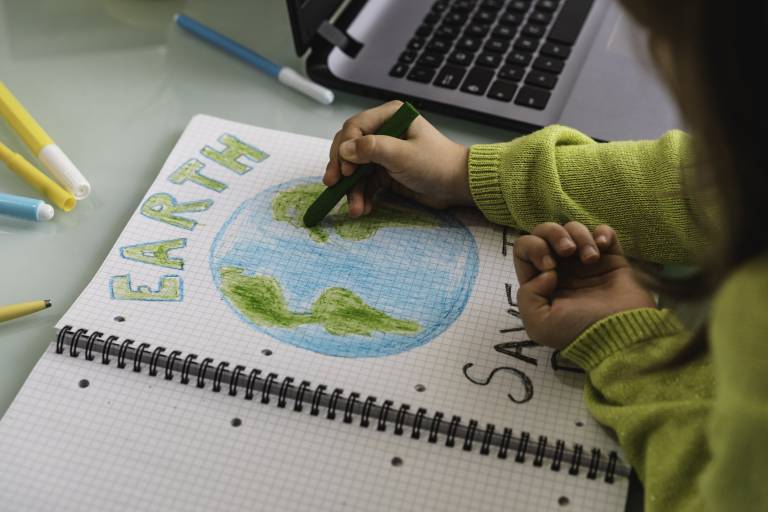Putting children at the centre of the SDGs
An initiative coordinated by child health experts at UCL will ensure the needs of the next generation are at the centre of policies to deliver the SDGs.

14 June 2022
New threats to children’s health are increasing around the world, ranging from the impacts of climate change, to exploitative marketing of unhealthy foods and products, to the as-yet misunderstood impact of the COVID-19 pandemic.
To mitigate the impacts, a report, published in 2020 – ‘A future for the world’s children?’, highlighted the need for a radical rethink on children’s health policies.
Forty health experts, led by Professor Anthony Costello and Dr Sarah Dalglish (both UCL Institute of Global Health), contributed to report, which was published by the World Health Organisation (WHO), UN Children’s Fund (UNICEF) and The Lancet medical journal.
Their overriding message was that children’s health and well-being gives meaning to the concept of sustainability, and that the perspectives and voices of young people must be heard when shaping policies in all sectors.
To implement the recommendation to put children at the centre of the policymaking endeavour, in 2021 the team established Children in All Policies by 2030 (CAP-2030), in partnership with WHO, UNICEF and The Lancet. “CAP-2030 is developing a global movement for change to tackle the most urgent issues facing the world’s children today,” emphasises Dr Dalglish.
The group’s activities vary depending on the local context, as each country has different priorities for improving children’s health and wellbeing. But all activities put children’s rights to health and wellbeing at their centre. CAP-2030 is building coalitions across countries, from Argentina to Senegal to India and the Pacific Islands. The network provides evidence and data for policymakers to take a broad view of what children need to be health and well.
““CAP-2030 is developing a global movement for change to tackle the most urgent issues facing the world’s children today.”
On climate change, CAP-2030 seeks to demonstrate the impacts of climate change on children, such as the effects of extreme weather on health and the availability of food. With partners in the Pacific Islands, it works to amplify the voices of young activists and is supporting Indigenous youths to find their voice as part of the environmental justice movement.
In another area of work, in support the UN Convention on the Rights of the Child, CAP-2030 is coordinating a new coalition made up of WHO, UNICEF, the Office of the UN High Commissioner for Human Rights (OHCHR), and numerous civil society, government and academic partners to understand the impacts of commercial marketing on children and take effective regulatory action to protect their physical health and mental well-being.
“We are engaging with communities, families, and children themselves to push for further national and international regulations to protect children from harmful marketing and the misuse of personal data,” Dr Dalglish explains.
“Putting children at the centre of the SDGs helps define what we mean by sustainability and will help us to make progress towards all goals,” she adds.
 Close
Close


